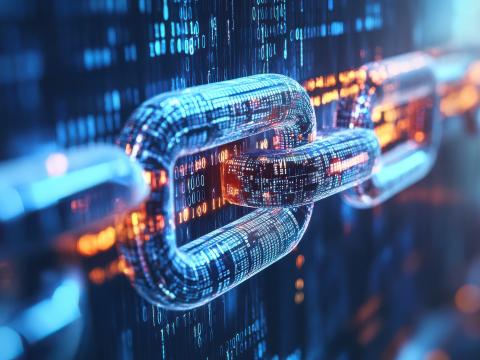The Significance of the PATRIOT Act Transcends Politics
The headline-driven controversy over the PATRIOT Act tends to obscure many of the key issues that buttress this important element in the war on terrorism. The Free World is facing an unyielding enemy that is using every aspect of Western society—from its liberties and protections to its technological infrastructure—to suit its twisted ideology that lauds mass murder of innocents. The
The U.S. Constitution is an amazing document. It laid the foundation for more than two centuries of freedom and democracy. And, its Fourth Amendment—protection against unreasonable searches and seizures—remains an important part of the Bill of Rights. But given the urgency of the war on terrorism, the enormous societal and technological changes that have occurred over the past few decades may require us to look at our security measures in a different light than did the founding fathers a quarter of a millennium ago.
Not surprisingly, when it comes to security, the technology changes that have occurred over the past 20 years offer both challenges and opportunities. The challenges come from the capabilities that can be exploited by the enemy. The opportunities are found in new ways that the Free World can protect its people from those murderous nihilists.
Government can adjust its institutions to maintain their effectiveness in the face of a new challenge. It has done so. For example, with the collapse of the Berlin Wall and the beginning of the end of the Cold War in 1989, the
In the same vein, the creation of the U.S. Department of Homeland Security should lead us to look at the technologies that we originally developed to support freedom’s causes off our shores. We should be able to use some of those technologies against an adversary embedded in our very society.
We have made enormous investments in collecting information abroad, but these largely targeted national governments and militaries. The adversary has changed and is just as likely to be in a major
There are many examples of how the government has adjusted to deal with threats that are based on exploitation of the protections afforded by
This new situation is made even more dynamic by information technology. Our founding fathers understood the need for individual rights and protection from intrusive government, but they never could have imagined the capabilities that are emerging in the information age. Terrorists understand these capabilities very well. Government must account for these capabilities as it strikes a balance between the pursuit of terrorists and the protection of individual rights.
The goal is to increase security and guarantee freedom and rights to the public. We can provide the tools to fight terrorism without severely restricting law enforcement. And, we can put mechanisms in place to ensure that these empowering tools do not undermine the very freedoms that we are fighting to maintain.
Of course, it is healthy for dialogue on this topic to occur. As a nation, we need to publicly discuss how technology has changed and times have changed. What has not changed is the federal government’s requirement to provide security and freedom for the people.
The terrorists that threaten our hard-earned freedoms today follow no rules, offer no compromise and show no mercy. They seek to exploit every safeguard that we have to protect our citizens’ freedoms in order to strip us of our way of life. We cannot allow that irony to continue.
If al-Qaida and its terrorist cohorts were to seize power in the
It is possible to increase security and guarantee freedom without significantly compromising privacy for the American public. It is absolutely necessary that we make these adjustments in order to preserve the very liberties that people treasure. And, the public must play a central role in a healthy debate on these issues.




Comments